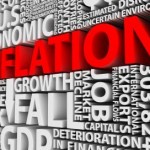By FXEmpire.com
President Obama Declares War on Crude Oil Speculators
US President Obama today declared war on speculators in the Crude Oil markets.
After a global effort to lower the price of crude oil, through press, through awareness, compounded with threats to release worldwide strategic reserves without success, the Obama Administration has decided to take the speculators out of the markets.
As supply and demand separated itself from price the price of oil continued to increase, based on speculation. Oil inventories in the US continued to grow, OPEN continued to pump more than adequate supplied and demand continued to drop.
As the fragile US economy tried to heal itself, the prime enemy was becoming crude oil speculators, pushing up the price of energy, which is causing inflation and consumer and producers negative sentiment.
When consumers are worried that the price at the gas pump is more than they can afford they stop spending or spending is shifted but sentiment falls. Followed by manufacturing, and then everything is compounded by inflation, as transportation costs and manufacturing costs increase.
This is not just a US problem. Figures released today in the UK showed the pace of inflation in Great Britain accelerated to 3.5% in March from 3.4% the previous month, the U.K. Office for National Statistics reported. On a monthly basis, inflation rose 0.3%. Economists had forecast a 0.3% monthly rise. This rise can be attributed to the rising cost of energy.
The annual rate of inflation in the euro-zone came in at 2.7% in March, unchanged from the previous month but revised upward from a preliminary estimate of 2.6%, the European Union statistics agency Eurostat reported today. This increase can also be attributed to oil prices.
Inflation continues to rise in the eurozone even though the region’s economy is almost certainly in recession.
High world oil prices are being blamed with Brent crude near $120 a barrel.
The EU’s statistics agency has just revised upwards its initial reading for March saying consumer prices in the 17 countries using the euro were up 2.7 percent from a year ago, the same level as in February. Its first estimate for March was 2.6 percent.
 Most economists believe the euro area’s economy has slipped into recession after a contraction in the last quarter of 2011 and with a subsequent probable shrinkage in the first three months of this year.
Most economists believe the euro area’s economy has slipped into recession after a contraction in the last quarter of 2011 and with a subsequent probable shrinkage in the first three months of this year.
Were it not for energy costs inflation would likely reflect the depressed economy where rising unemployment, government cuts and weak business confidence have eroded consumers’ willingness to spend.
Energy accounted for about 0.6 percentage points of the eurozone’s inflation level in March, meaning that without the high cost of fuel, gas and heating oil, consumer prices would be around the European Central Bank’s target of below, but close to 2.0 percent.
Annual inflation in March was as high as 3.8 percent in Italy and 3.1 percent in Belgium, while only 2.3 percent in Germany and 1.8 percent in Spain.
Originally posted here



